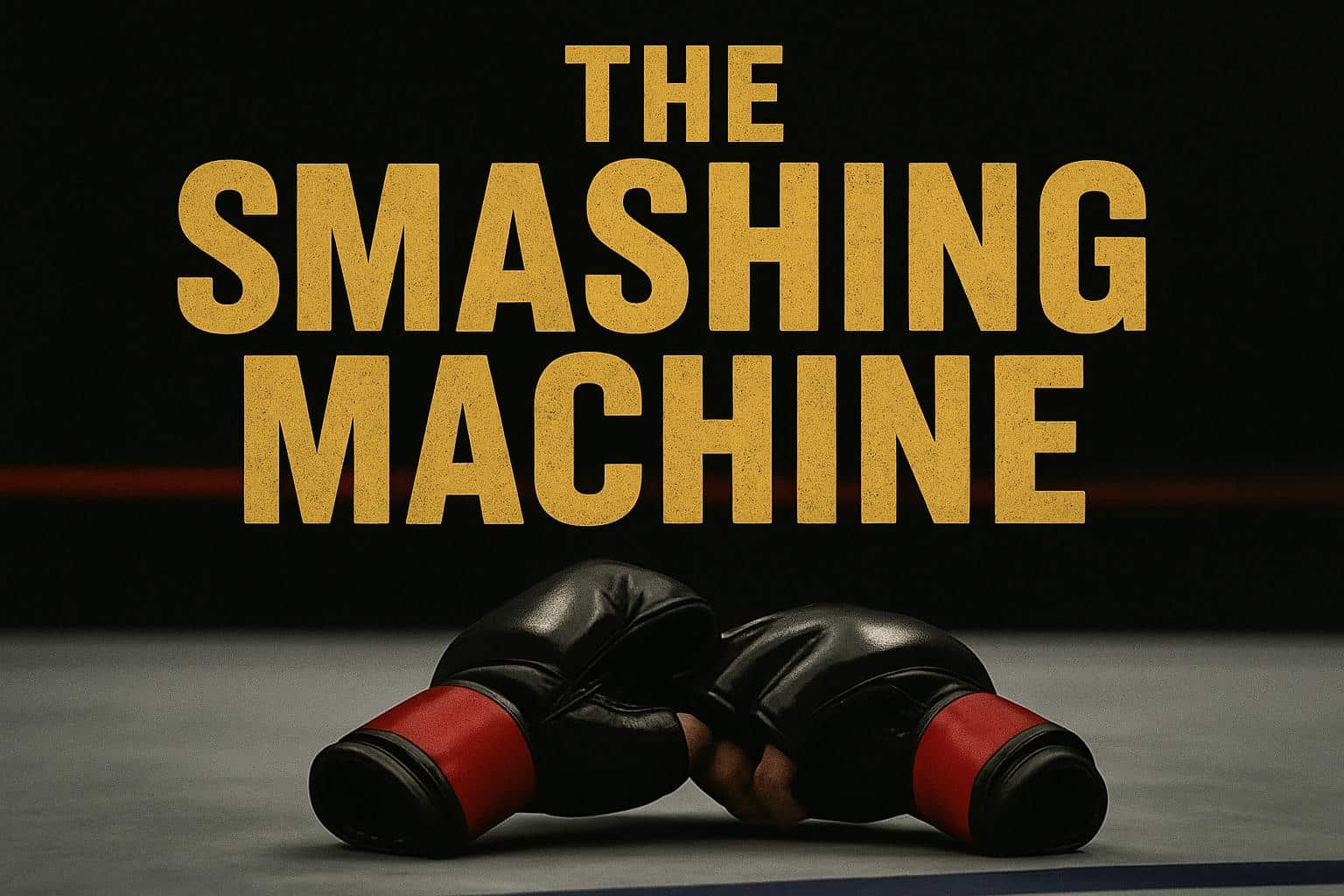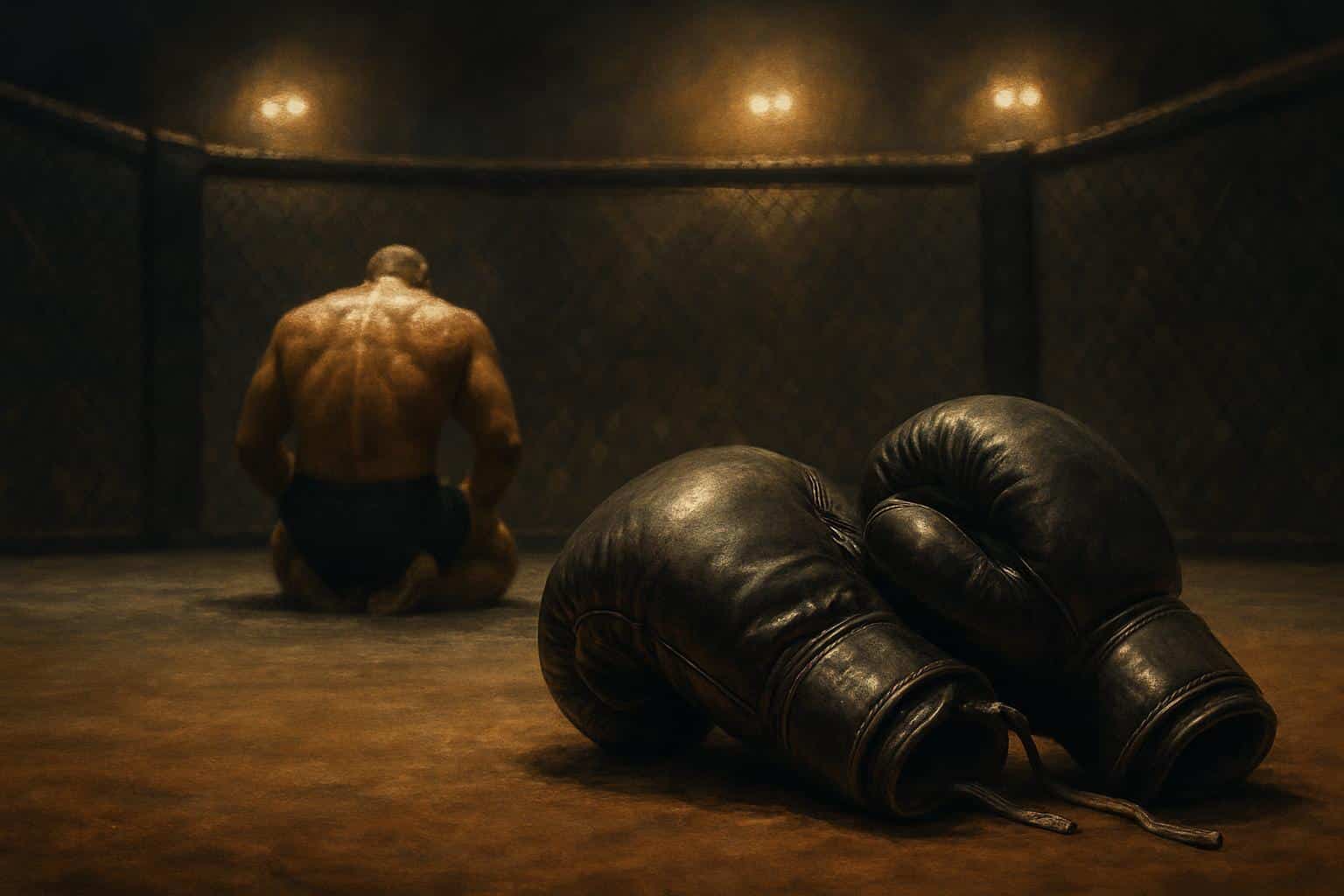Dwayne Johnson’s performance as Mark Kerr in The Smashing Machine is exactly the sort of recalculation movie stars spend years pursuing: sober, inward and resistant to the easy charm that turned him into a global brand. He locates a register of vulnerability that is miles away from franchise swagger. But the movie puts up a wall between us and that epiphany, and it’s a solitary, defining flaw that dulls its effect: distance.
A heavyweight performance, sanded down to its essentials
Johnson embodies the physical and emotional form of Kerr, a college-wrestling legend who bulldozed into MMA before Pride FC turned heavyweights into global icons. The actor gains weight, slows his walk and softens his pace into a deliberate murmur — less locker-room braggadocio, more confidential taking stock of pain.

He is particularly persuasive in moments of quiet exchange: the carefully managed composure after a brutal gym session, the wordless recalibration after an error in sparring, the wary reassurance doled out to teammates who know perfectly well what those bruises cost. It’s textured work, the sort that awards bodies like to reward in combat-sports dramas, from “Raging Bull” to “Million Dollar Baby” and “The Fighter.”
The big problem: A movie that keeps us at arm’s length
Benny Safdie has made two stylistic decisions here that offer respect for reality but also place us at a remove. First, “use prosthetics and wigs to submerge Johnson beneath a ‘remarkably accurate’ depiction of Kerr.” The craftsmanship is top-notch but counterproductive: the brow work frequently casts too much shadow over Johnson’s eyes — which are the cinema’s single clearest window to interior life. In a show of such minor-key modulations, dull eyes mean dulled connection.
Second, the fight photography is a comprehensive rejection of the ringside intimacy audiences are accustomed to seeing. Safdie keeps us outside the ropes, watching like ticketed fans instead of experiencing breath and canvas. It’s a straightforward angle, but the film deepens the rift between viewer and subject when coupled with prosthetics hiding the face. The spirit is verité; the result, remove.
A tale light on stakes, heavy on narrative drift
Structurally, the movie swaps out the genre’s familiar ascent — a title chase, a rival, an ur-moment contest — for an episodic profile. We jump from primal grudge material to Japanese arena to domestic agitation with Dawn Staples (flailing and all-in Emily Blunt, part of what at times feels like more movie than the mosaic can reasonably contain), but rarely does the mosaic lock into momentum.
But addiction arrives as a matter-of-fact consideration of pain care, not a battle neatly charted. An overdose is reported secondhand; rehab happens offscreen; relapses resonate more as tonal notes than turning points. The collision of high-impact training with painkiller consumption has been a staple topic within sports medicine literature for years, and reporting from outlets like ESPN and the Association for Applied Sport Psychology have traced the culture of “playing through” injury. The movie gestures toward that truth without affording it the narrative scaffolding it demands.
There’s dignity in not sensationalizing Kerr’s lows. But when its arcs of the personal and the professional both privilege deescalation, its plot barely crests. With no ladder to climb, even Johnson’s very best beats feel stranded.

Authenticity where it matters: world-building and casting
Safdie knows how to register a milieu. Handheld and locker-room acoustics capture the volatile intimacy of fight camps: the taped ankles, the whispered tweaks, the hard silence before walkouts. Needle-drops of late-‘90s radio staples snap the timeline into place quietly.
Smartest of all is filling the movie with actual fighters — Ryan Bader, Oleksandr Usyk, Satoshi Ishii, Marcus Aurélio and so on — who bring an uncoached rhythm to training-room banter and corner advice. It’s the Uncut Gems playbook applied to MMA: let specialists be themselves and the frame fills with lived-in detail. Bader, in particular, glides between gym-floor authority and regular-friend warmth.
Blunt, meanwhile, does battle with cliché as Dawn, a wife ping-ponging between service and self-destruction.
She discovers notes of self-consciousness in a part that could have been all about the temper. You feel the couple’s comfy codependency even as it skitters away from the why.
What this means for Johnson — and the movie
For Johnson, this is career-redefining proof of concept: that he can carry an art-leaning drama without reverting to brand. It’s an inward performance, free with scene partners and strict about silence — which enhances his dramatic range.
For the film, the calculation is more brutal. A24 and Safdie are going for an unslick vérité, and that’s just what they get. But the veil of face-altering prosthetics and observational remove largely keeps us peering through glass. In a film about one man learning how to let those slow cars around him see him — beyond “The Smashing Machine” — it’s an expensive exchange.
What rouses admiration in the film is its texture and its lack of grandstanding. It simply wanted fewer standard-issue blockades between us and the soul Johnson is finally ready to reveal.

